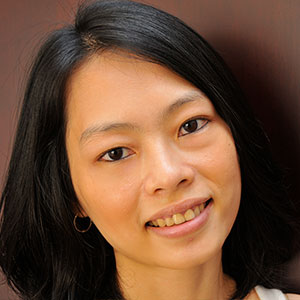How do you excel at work? Most of us think we have to achieve good grades.
Wrong.
It is not all about the academic excellence, but the attitude and personality.
Is our education system preparing the students to the world of work? Well, not quite.
Too many university graduates enter the jobs market, without knowing how to translate their qualifications into career. What went wrong?
Recently, Aslam Jalil, a Public Service Department (PSD) scholar with the Australian National University, was given a show cause letter for participating in a forum entitled, “Race, Religion, Royalty" with DAP MP, Tony Pua.
That, I must say, was simply absurd. We should be pleased that there are progressive students who involve themselves in such activities.
Quite a number of students I encountered in the past have complained that student life is too busy to juggle. Hence, there is too little time to spare to participate in forums or volunteer works.
Very often, these groups of students are those who remain unemployed.
While some are fortunate enough to land a job, they find it difficult to adjust as by then, they would complain that working life is too busy to juggle. Only then they realise that maybe, they should go back to university and become a student again.
This leads to high unemployment rate simply because our students are not ready and unable to compete with the pace of globalisation.
Without giving enough space for the students to explore the outside world apart from their comfort zone a.k.a. the classrooms, they will not be able to expand their horizons.
Malaysian politics has broken us into many divisions – race, religion, class, gender, language, culture and even accent. But some young people are slowly changing it, little by little.
It is a good sign that some overseas Malaysian students are still very much in touch with their country's politics.
Talking about Malaysian politics critically overseas does not mean a person is against the government. Far from it, it is an act of democracy.
In contrast, it would be a problem if overseas Malaysians, especially, are not keen on participating in events related to their home country. Some tend to paint Malaysia a negative image to the others, without even having any intention to bring change at home, apart from criticising continuously.
This is not the first time that Malaysian students, be it locally or abroad, have been warned over political events featuring opposition figures.
In most developed nations, most citizens are aware of their right of expression and would defend it from any suppression. However, this is not the case in Malaysia. Exposure and knowledge of such right remain low.
Since the last decade, the level of social and political activism has escalated due to the new political landscape in Malaysia. Yet, the number of students joining the social, economic and political debate are relatively low.
The same is the case with volunteer works. In comparison, the public university students are always deemed as less “aggressive” compared to those in the private colleges.
It is bad practice to ban students from participating in political debates because we disagree with them on certain policies, no matter how strongly.
The clash of competing ideas is a crucial catalyst, not only for the amplification of knowledge, but also in a student’s maturation of independent critical judgement.
Recognising the significance of such dynamics, it is crucial that we “teach all sides of the debate” in classes.
It is also essential for students to be able to engage differences of opinion and later on form their own judgments about the relative value of competing viewpoints.
Regardless of one’s position on issues related to Malaysian partisan politics, I firmly believe that the only way to bring about change is by using the democratic process from within, by encouraging dialogues among both sides of the political divide, rather than simply shutting up the engagement.
As it stands at present, controlling students, be they local or overseas, from participating in constructive dialogues is totally negative and self-defeating. Most importantly, it contradicts the basic principle of academic freedom. – June 30, 2014.
* This is the personal opinion of the writer or publication and does not necessarily represent the views of The Malaysian Insider.


Comments
Please refrain from nicknames or comments of a racist, sexist, personal, vulgar or derogatory nature, or you may risk being blocked from commenting in our website. We encourage commenters to use their real names as their username. As comments are moderated, they may not appear immediately or even on the same day you posted them. We also reserve the right to delete off-topic comments